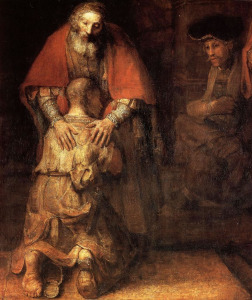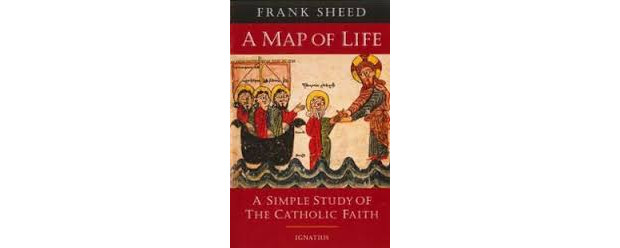Short Stories by Jesus, The Enigmatic Parables of a Controversial Rabbi, by Amy-Jill Levine, HarperCollins, New York, 2014, 313 pages.
“Religion has been defined to comfort the afflicted and to afflict the comfortable. We do well to think of the parables of Jesus as doing the afflicting. Therefore, if we hear a parable and think, ‘I really like that’ or, worse, fail to take any challenge, we are not listening well enough.” p. 3
In “Short Stories by Jesus, The Enigmatic Parables of a Controversial Rabbi“, Dr. Amy-Jill Levine, Professor of New Testament and Jewish Studies at Vanderbilt University, seeks to determine the “original challenge” of eleven parables told by Jesus in the Gospels. Levine bases her presentation on three premises:
- When Jesus originally told it, each parable had an “original provocation” or challenge for its original first century listeners.
- The Gospel authors were the among the first interpreters of the parables, and in the process “domesticated” the parables, diminishing the “original provocation.”
- Jesus’s parables each can have multiple meanings.
Levine, a Jew, also counters any unjustified vilifying of Judaism in contemporary interpretations of the parables she considers in her book. The parables she considers include: The Lost Sheep, The Lost Coin, The Lost Son, The Good Samaritan, The Kingdom of Heaven is Like Yeast, The Pearl of Great Price, The Mustard Seed, The Pharisee and the Tax Collector, The Laborers in the Vineyard, The Widow and the Judge, and the Rich Man and Lazarus.
Some Problems
Discerning Christians will quickly realize a problem with the second premise, that the Gospel authors have “domesticated” the parables, or have watered down their original challenge. Levine says that Luke “tames the parables” [p. 277] and that “Jesus was more interested in how we love our neighbor than how we get to heaven” [p. 199]. When considering the parable of the Lost Son [Luke 15:11-32], for example, she dismisses Luke’s interpretation through Jesus’s words, that “there will be more joy in heaven over one sinner who repents than over ninety-nine righteous persons who need no repentance.”[Luke 15:7] and says the first century Jews who heard this story first would have heard another challenge.
My response to this claim of “domestication” is this: I’ve realized that if ever I’ve failed to find sufficient challenge in the Gospels, it’s because I’ve failed to fully and sufficiently reflect on my own desperate situation, not because the Gospel has “domesticated” the words of Jesus. Moreover, I cannot pit Jesus’s concern for our temporal well-being against his concern for our eternal well-being. As a Christian, I believe that his concerned spanned the temporal and eternal and that there is no reason to suspect that his parables were limited to his temporal concerns.
The Lost Sheep, the Lost Coin, and the Lost Son
While I dispute Levine’s contention that Luke, Matthew, and Mark have domesticated the parables, I do agree that those stories might have multiple meanings. Levine’s treatment of the parable of the Lost Son is intriguing, and while she ignores Luke’s interpretation, her own does not contradict his, and in fact, complements it.

She does not consider the parable of the Lost Son separate from the two shorter parables that precede it, the parable of the Lost Sheep and the parable of the Lost Coin. Her contention is that the stories are about “counting and searching for the lost”, she notes that “the owner spots the missing sheep among the hundred, and the woman spots the missing coin among the ten. The father, with only two sons, was unable to count correctly.” [p. 45].
We also learn from Levine the following details:
- When the original listeners first heard Jesus say, “There was a man who had two sons“, they would have probably remembered the many famous biblical stories of two sons, Adam’s Cain and Abel; Abraham’s Ishmael and Isaac; Isaac’s Esau and Jacob; and Joseph’s Manasseh and Ephraim. They would certainly have wanted to identify with the younger of the sons, but in this story, the older son is faithful, while the younger son is profligate. This is a provocation, since “the idea that an elder brother – Cain, Ishmael, Esau, the second lost son- is sympathetic again prompts a challenge to our expectations.”
- The younger son never expressed contrition for his sins. Oh, he does say, ” I will arise and go to my father, and I will say to him, “Father, I have sinned against heaven and before you“, but he never actually says that “I have sinned”, only that this what he will say to his father, and he never actually does. Moreover the phrase “I have sinned against heaven and against you” was famously told to Moses by Pharaoh in the Exodus story [Exodus 10:16], and we all know how sincere that apology was…
- The story of the Lost Sheep and the Lost Coin both end with a party, but the story of the Lost Son does not. Look closely. While there is a big party, the story ends with an inconclusive and heartbreaking conversation in a field between a father and son.
- The story of the Lost Sheep and the Lost Coin, the shepherd and woman both search diligently for what they lost. The father of the Lost Son does not search for his younger son, and does not even search out his older son to tell him the good news of the return of the younger son. Remember that the older son returned from the fields quite surprised by the party. The father had not shared the good news with the older son – he had to ask [Luke 15:25]. The father only searches for the older son when he belatedly realizes at the end of the story that he’s the one that’s really lost to him.
So, in the end, it’s the elder son who is lost and must be sought after. In Levine’s words, “we too are to seek the lost and make every effort to find them. Indeed, we are not only to seek; we are to take notice of who might be lost, even when immediately present. [p. 278]” As you can see, this is different than the lesson of repentance and radical mercy that we usually associate with this parable.
The Strong Points
The book has several strong points. I enjoyed Levine’s exposition of the context of first century Palestine and learned new things about tax collectors, Pharisees, widows, judges, merchants, inheritance and even mustard trees of those days. After reading the book I think that I also have a healthier view of first century Judaism than I had before.
Summary
“Short Stories by Jesus” certainly proved provocative to this Christian. While I cannot agree with her that the Gospel writers “domesticated” the parables, I do find in her work some good insights into the original context of the Gospels, as well as other interpretations of the parables of Jesus that are worthy of consideration.
About Amy-Jill Levine
Amy-Jill Levine is University Professor of New Testament and Jewish Studies, E. Rhodes and Leona B. Carpenter Professor of New Testament Studies, and Professor of Jewish Studies at Vanderbilt Divinity School and College of Arts and Science in Nashville, Tennessee; affiliated professor at the Centre for the Study of Jewish-Christian Relations at Cambridge; and a self-described “Yankee Jewish feminist who teaches in a predominantly Christian divinity school in the buckle of the Bible Belt.” She is the author of The Misunderstood Jew and the editor of The Jewish Annotated New Testament. From http://www.harpercollins.com/cr-103689/amy-jill-levine



Cool ! I think understand what she’s trying to say concerning her use of “domesticating” -which might be similar to what Matthew captured with his camera angle by complimenting what Luke captured with his camera angle:
Matthew 5: “Blessed are the…”
(at the mount)
Luke 6: “Blessed are you who…”
(at the plain)
Luke makes it clear that the three parables (Lost Sheep, Lost Coin, and Lost Son) are meant to be interpreted together. One thing I failed to mention in my post is that because the three are inseparable, there are problems with associating the God with both the shepherd and the father of the two sons. After all, we usually are not tempted to say that the woman with the lost coin represents God the Father. She lost the coin through her own negligence. Levine says that she’s more negligent than the shepherd, but even he has some culpability in losing that one sheep. But if the stories are meant to be considered together, one could assign the most negligence to the man who lost a son who was faithful to him his whole life.
There is indeed much rejoicing in heaven over the repentance of one lost sinner, but we have some responsibility in finding them – and not losing them in the first place.